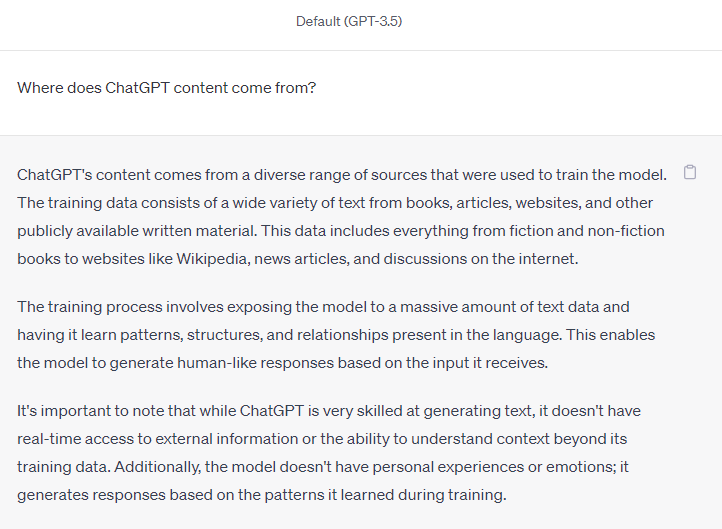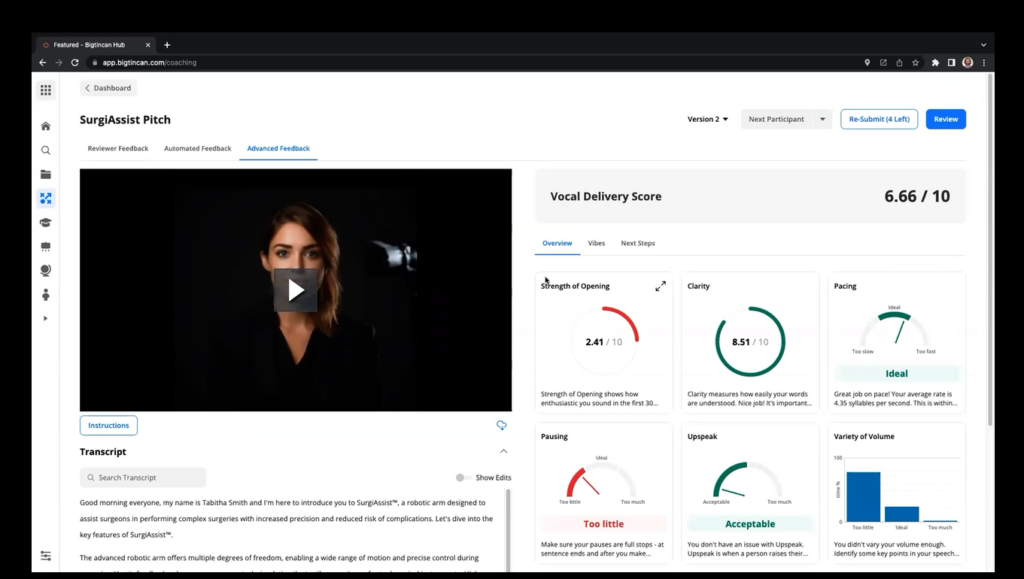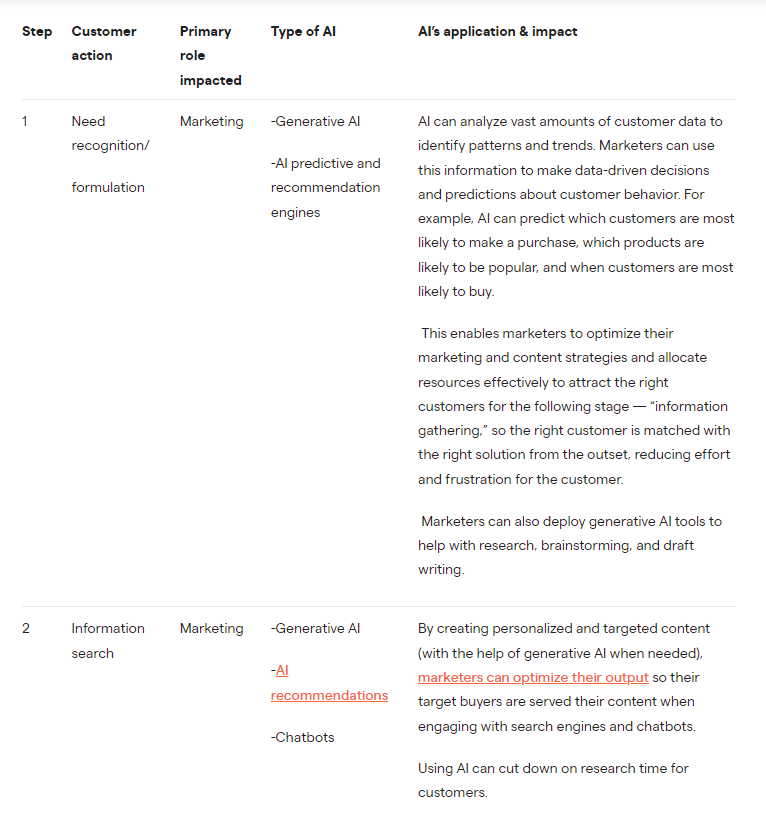Sales enablement AI defined
Sales enablement AI refers to the different types and functions of artificial intelligence and machine learning tools used to make go-to-market organizations more efficient and productive, such as generative AI, conversational and coaching AI, predictive AI, or chatbots.
These AI tools are used to enable professionals in customer-facing roles, such as sellers, marketers, customer success manager, and support agents, by automating or simplifying repetitive tasks and freeing them up to focus on higher level initiatives.
Enablement and learning & development professionals also incorporate AI training tools into their programs to scale and optimize their efforts, as they’re often small teams supporting dozens or even hundreds of employees in large enterprises.
Benefits of sales enablement AI
AI tools help employees speed up, automate, and optimize tasks so they can improve outcomes, whether those outcomes are measured in customer experience, time, or revenue.
Much like enablement teams, other departments such as marketing are often understaffed, and can use AI to help scale their outputs. (But keep in mind AI must always be supervised and does not fully replicate or replace human workers.)
For example, research indicates sales and marketing teams are able to produce 50% more leads and reduce call times by up to 70% when assisted by AI.
When responding to our original survey of B2B tech professionals who use AI in their roles, customer success managers indicated they believe it can help them provide a positive customer experience.
One customer success professional explained that if AI is used “in the right way” it can help them “automate simple tasks, gather data, and help us to better (and faster) understand our customers behaviors, goals, use cases, and industries and provide a more personalized experience based on that information.”
Further reading: How artificial intelligence benefits sales enablement
Challenges of sales enablement AI
If you can use artificial intelligence the “right way,” that means you can also use it the wrong way.
See also: Pros and cons of using generative AI for sales
The incorrect use of AI can result in security, ethics, customer experience, information accuracy, and content quality challenges — especially when it comes to open-source generative AI.
Open-source AI tools like ChatGPT pose several security threats to personal and business information. You should be wary and tactful with your queries to open-source LLMs (large language models) and never enter sensitive or confidential information.

Don’t ask them to summarize or rephrase any private or proprietary content, such as business plans or employee contracts.
LLM chatbots are also known to provide plagiarized, inaccurate, or biased copy due to how they use existing content on the internet to generate their responses.
Did you know? Much of what is referred to as “AI” today is actually machine learning technology, not true artificial intelligence, which is why outputs generated by LLMs are repurposed from preexisting content and must be edited by humans to be truly original.
Naturally, if you use unedited outputs and don’t make efforts to remove these risk factors, it presents challenges to ethical practices, content and communication quality, and customer experience.
To overcome these challenges, organizations must:
- Protect privacy and sensitive information with user agreements, encryption, and other cybersecurity measures
- Strike a balance between AI and human agents in customer interactions
- Offer users the ability to opt-out of AI tools and information collection
- Actively work against bias
- Ensure information accuracy within proprietary offerings and by editing and fact-checking AI output
Find more details on each of these points in this article: AI’s impact on the buying experience + how to make sure it’s positive
Types of sales enablement AI tools
The main types of sales enablement AI tools used by go-to-market organizations today are AI sales assistants, AI training tools, and predictive AI.
AI sales assistants
When bundled together, generative AI, chatbots, and AI content and meeting summarization function as a digital sales assistant, leveraging machine learning to support sales professionals throughout the sales cycle.
By automating routine administrative tasks, AI sales assistants free up time for sales professionals to focus on building relationships and closing deals.
It can automate tasks like data entry, scheduling, CRM updates, and document generation, allowing sales reps to work more efficiently and effectively, enabling them to close deals faster and achieve better results.
- Generative AI helps sellers draft emails and copy for presentations
- Chatbots can answers customer queries when reps are not available, providing 24/7 customer service
- AI content and meeting summarization reduces time sellers spend logging notes from their calls by automating that process, improving CRM data and allowing reps to move on to their next task without unnecessary slowdowns

See how this email was edited and get more examples in Guide to successful AI email writing for sales that doesn’t derail quality and customer experience.
AI training and coaching tools
Coaching AI
Coaching AI is a type of AI training tool that refers to the application of artificial intelligence and machine learning technologies in the field of coaching and mentorship.
It aims to assist individuals in personal and professional development by providing personalized and on-demand guidance, feedback, and support, without the need for a human manager or coach to be present at all times.
Coaching AI helps teams refine their presentation and communication skills to better connect with your customers and prospects by analyzing vocal and visual input and providing feedback on performance based on its library of examples.

Conversational AI
Similar to Coaching AI, Conversational AI (or Conversation Intelligence) is a type of AI training tool that records and analyzes audio input, providing performance and improvement insights to sellers using machine learning.
While Coaching AI is more often used for practice pitches and presentations, Conversational AI records live (or rehearsed) sales conversations, marking the number of speakers, how often and how long each person speaks, vocal volume, tone, pauses, keywords, and other data that helps seller notice and correct unhelpful patterns in their speech in order to improve their conversation skills as well as customer experience.
See more in: What vibes help you sell? How AI-powered sales coaching improves your pitch
Predictive AI
Predictive AI, also known as predictive analytics, refers to the use of artificial intelligence and machine learning algorithms to analyze historical data, identify patterns, and make future projections or forecasts. It aims to anticipate future outcomes based on existing data, enabling organizations to make proactive decisions and take appropriate actions.
It assists go-to-market teams with many activities, such as:
- Personalizing buying journeys and learning paths through content, training, and next-best action recommendations.
- Improving customer experiences by analyzing customer data, including past behaviors, preferences, and interactions, to anticipate their future needs and provide personalized recommendations or offers. This helps in building stronger customer relationships, increasing customer satisfaction, and driving loyalty.
- Optimizing marketing and sales strategies by analyzing customer data, market trends, and historical performance, identifying target segments, predicting customer behavior, and recommending personalized marketing approaches. This leads to more effective marketing campaigns, improved conversion rates, and increased sales.
AI use cases in sales and marketing
AI use case and buying journey map
Here’s a sample of a typical buying journey for a SaaS product showing how different roles and functions are impacted by different types of AI at each step in the process.

View the full map here.